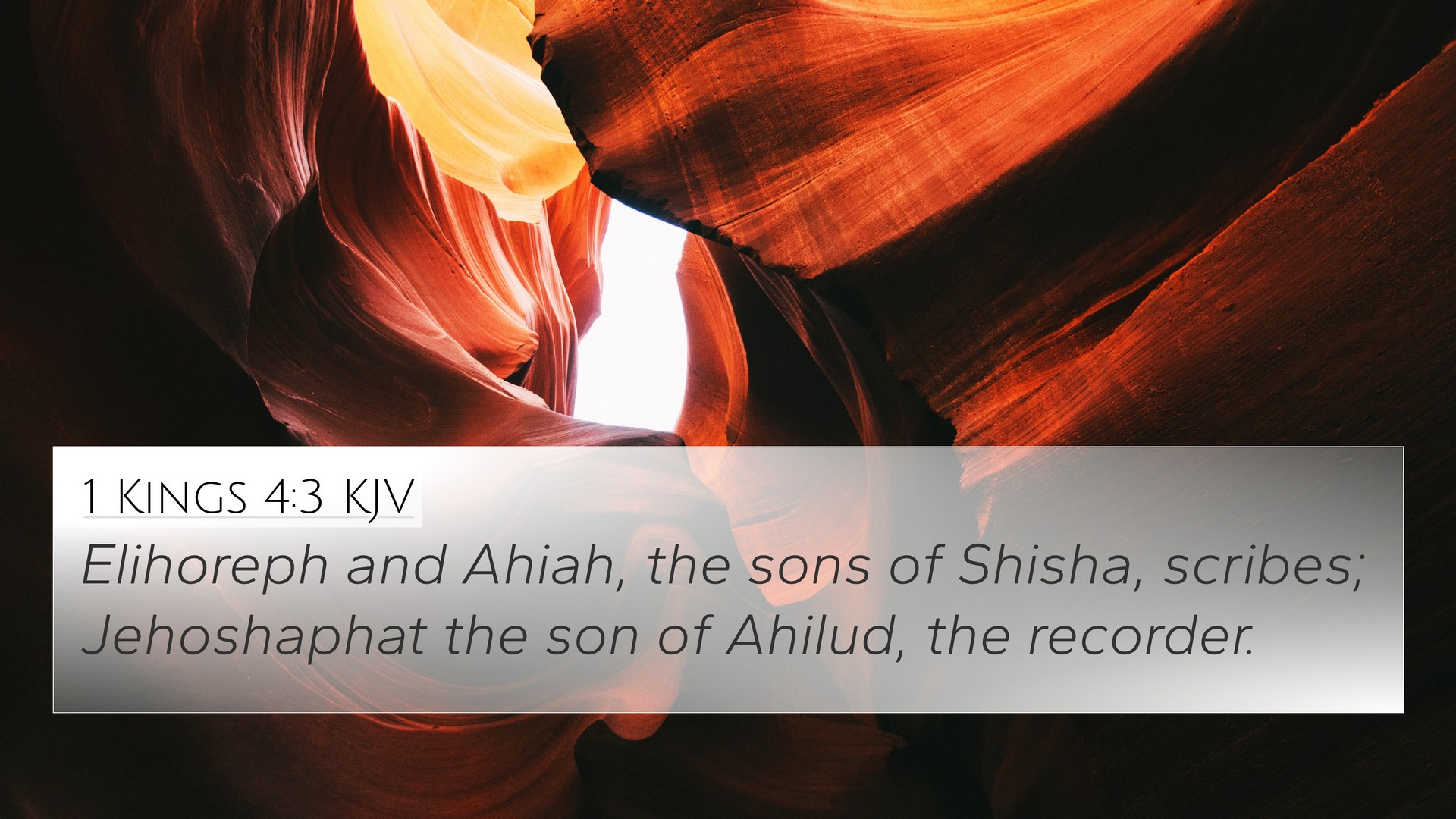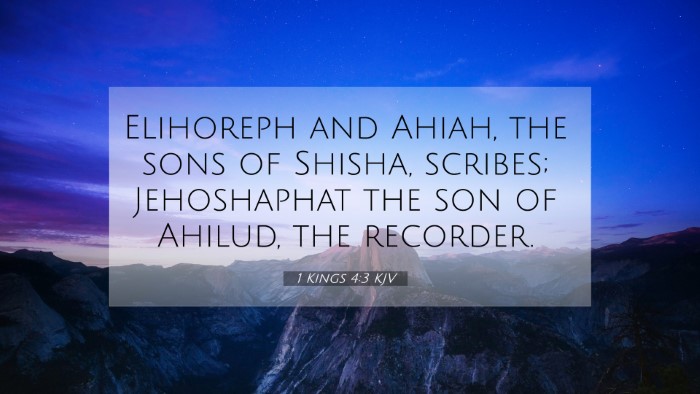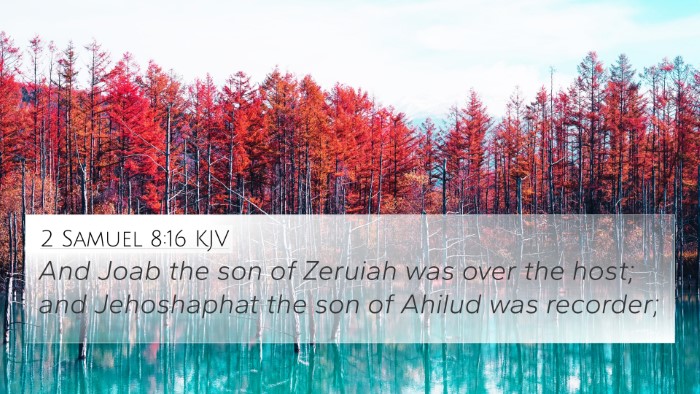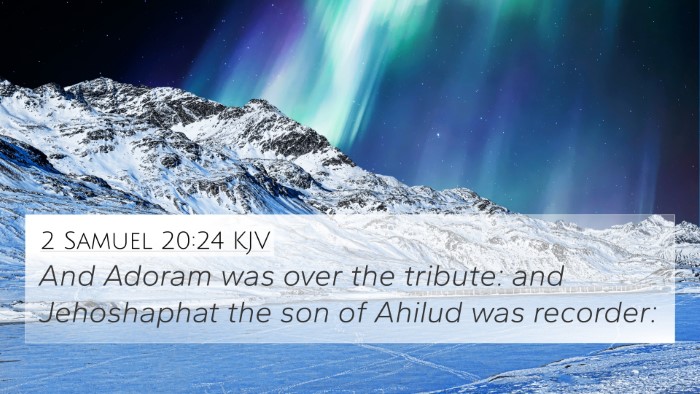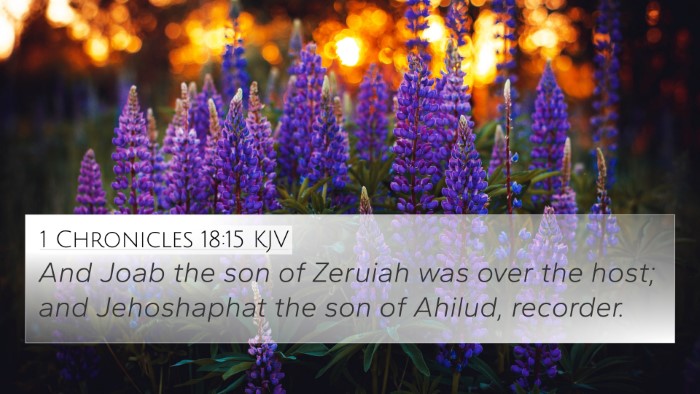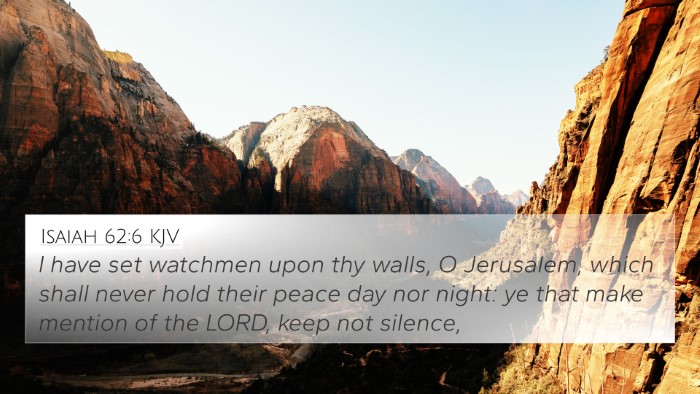Understanding 1 Kings 4:3
1 Kings 4:3 presents a snapshot of King Solomon's administration, highlighting the important roles of his officials and advisors. It states:
“Elihoreph and Ahijah, the sons of Shisha, scribes; Jehoshaphat the son of Ahilud, the recorder.”
This verse is crucial for understanding the structure and governance of Solomon's kingdom, showcasing how he surrounded himself with capable individuals to manage his rule effectively.
Insights from Commentaries
Matthew Henry's Commentary
Organization of Government: Henry emphasizes that Solomon's wise choice of officials illustrates his understanding of the importance of a well-organized government. The listing of scribes and recorders indicates a kingdom that values order and record-keeping, essential for maintaining power and managing resources.
The Role of Scribes: He notes that the scribes were crucial for documenting laws and decisions, reflecting the value of legal frameworks in governance. Solomon ensured that his kingdom was well-informed and properly administered.
Albert Barnes' Commentary
Significance of Officials: Barnes argues that the names mentioned in this verse represent individuals engaged in critical functions within the king's court, responsible for maintaining accurate records and facilitating communication. This points to a structured hierarchy that supported Solomon’s administration.
Historical Context: He also provides a historical context, mentioning previous leaders and how Solomon's administration built upon existing traditions, thereby reinforcing his rightful claim to the throne.
Adam Clarke's Commentary
Clarity in Leadership: Clark suggests that the mention of the sons of Shisha indicates lineage and legacy in public service, showing how roles were often inherited or held by families known for loyalty and capability.
Importance of Documenting History: He points out the importance of scribes in ancient Israel, both for preserving history and providing legal oversight, which were foundational for a stable society.
Cross References for 1 Kings 4:3
- 2 Samuel 8:16-18 - Outlines David's officials, establishing continuity in Solomon's governance structure.
- 1 Chronicles 28:1 - Asserts the importance of assembly for leaders, indicating a foundational process for Solomon.
- Exodus 18:21 - Moses appointing judges reflects a foundational principle for organizing leadership.
- Proverbs 11:14 - Highlights the significance of counsel and wise leadership in governance.
- Isaiah 33:22 - References God as a lawgiver and judge, emphasizing the need for righteous governance.
- Ecclesiastes 3:1 - Reflects the wisdom in having a time and purpose for every role in leadership.
- Matthew 20:26-28 - Jesus discusses servant leadership, a principle that Solomon embodies through his choices of servants.
Thematic Connections
The administrative framework established in 1 Kings 4:3 can be seen as part of a larger biblical narrative about leadership. By examining the structure of Solomon's court, we can identify themes related to governance, wisdom, and the importance of having wise counselors. These themes run through various parts of the Bible, indicating a consistent divine blueprint for leadership.
Exploring Cross-References
Utilizing tools for cross-referencing can help deepen our understanding of this verse. Identifying connections between Old and New Testament themes enhances our comprehension of God’s directive on leadership. For example:
- Using a Bible Concordance: This resource will help uncover additional scripture connections related to governance and wisdom.
- Bible Cross-Reference Guide: Helpful for contextualizing verses about leadership with those that discuss wisdom and counsel.
- Cross-Referencing Bible Study Methods: Engaging with comparative studies allows for a richer exploration of biblical themes across different books.
Conclusion
1 Kings 4:3 serves as a significant touchpoint in the narrative of Israel's history, detailing King Solomon's governance. By analyzing this verse through various commentaries and cross-referencing it with related scriptures, we gain a multidimensional view of biblical leadership.
